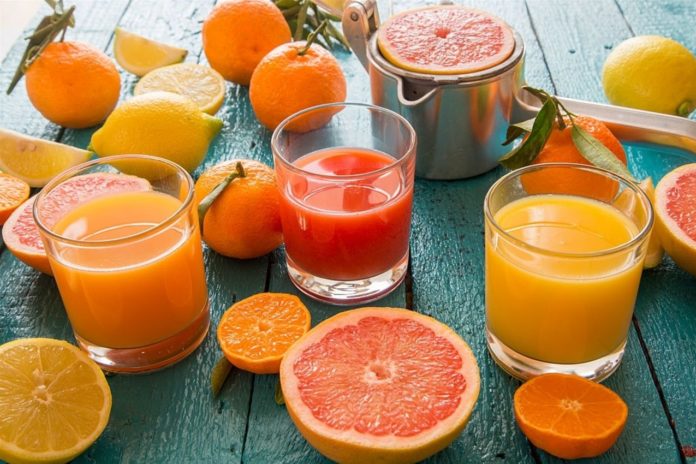Apples have been shown to aid in digestion, blueberries have been shown to help combat cell-damaging free radicals that can cause disease, and bananas have been shown to aid in the growth of beneficial bacteria in the gut.
While fruits contain a variety of beneficial nutrients, drinking fruit juice may not be the same.
Dr Gary Bartlett, a general practitioner, recommends that patients always consume whole fruits rather than fruit juice.
- Does This Mean We Stopped Being Animal and Started Being Human Due to ‘Copy Paste’ Errors?
- The One Lifestyle Choice That Could Reduce Your Heart Disease Risk By More Than 22%
- Aging: This Is What Happens Inside Your Body Right After Exercise
- Immune-Boosting Drink that Mimics Fasting to Reduce Fat – Scientists ‘Were Surprised’ By New Findings
- Gun Violence in America: What They Don’t Talk About at the Debate
According to him:
When you eat a fruit whole, the dietary fibre in the pulp and skin binds to the natural sugar in the fruit as it travels through your digestive system.
This binding action makes it harder and takes longer for your body to absorb the sugar.
As a result, the sugar from fruit accumulates in your blood at a lower and slower rate if you eat the fruit whole than if you drink straight fruit juice.
Drinking straight fruit juice, on the other hand, causes a spike in blood sugar, according to Dr Bartlett.
Your body will quickly release insulin in response to the high blood sugar levels leading to a large amount of the sugar in your blood being converted to fat and glycogen.
In this way, the blood sugar spike leads to a sudden blood sugar dip (unless you consume more food), leaving you hungry again.
Being hungry will make you eat more.
In conclusion, when compared to eating whole fruits, drinking pure fruit juice causes poorer blood sugar regulation and thus increased calorie consumption.
Dr Bartlett further advised:
If you want to drink juice, a good idea would be to juice whole fruits at home.
That way you are getting all the extra fibre and nutrients from the skin of the fruit without added sugar.
He also warned:
In my experience, a lot of type 2 diabetics will consume a lot of fruit juice thinking that they are making healthy choices, where in fact they will be causing harm to themselves with high blood sugars.
Fruit and vegetable juices and smoothies, according to health officials, contain a variety of vitamins and minerals.
A 150ml glass of unsweetened fruit juice, vegetable juice, or smoothie can count as one of your recommended five daily fruit and vegetable portions.
Limit the amount of fruit juice, vegetable juice or smoothie you have to no more than a combined total of 150ml a day (one small glass).
Have other types of fruit and vegetables for the other 4 (or more) portions.
This is because the sugars in fruit and vegetables are released when they’re juiced or blended, making them ‘free sugars’.
Fruit juice can damage your teeth in addition to raising your blood sugar levels.
These sugars, once released, can harm your teeth, especially if you drink juice or smoothies frequently.
- Does This Mean We Stopped Being Animal and Started Being Human Due to ‘Copy Paste’ Errors?
- The One Lifestyle Choice That Could Reduce Your Heart Disease Risk By More Than 22%
- Aging: This Is What Happens Inside Your Body Right After Exercise
- Immune-Boosting Drink that Mimics Fasting to Reduce Fat – Scientists ‘Were Surprised’ By New Findings
- Gun Violence in America: What They Don’t Talk About at the Debate
Sugars found in whole fruits and vegetables are less likely to cause tooth decay due to the fruit’s structure.
It’s best to consume juice or smoothies with a meal to avoid causing damage to your teeth.
Image Credit: Getty
